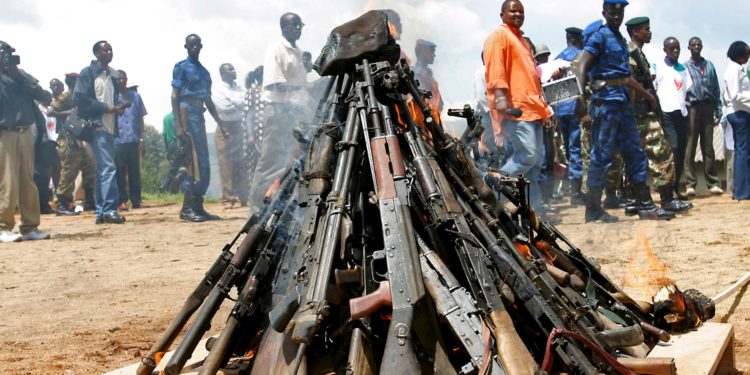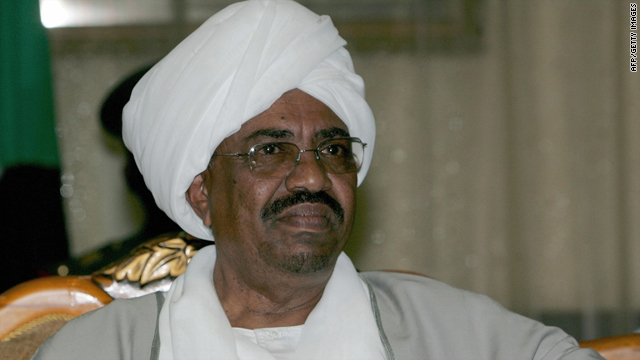The Boko Haram insurgency, with its spillover into Cameroon, Chad and Niger, is the most reported-upon security crisis in Nigeria. However the conflict between farmers and herders in Nigeria was far more deadlier, according to the International Crisis Group.
Scarcely reported on are local and low-level disputes such as cattle rustling and competitions for resources between farmers and herders. These disputes are being fueled by a proliferation of small arms and light weapons in remote and marginalised areas in Africa where government presence is scant.
In 2019 160 people were killed by armed men in a Malian village close to the border with Burkina Faso in what was described in the media as the “worst ethnic bloodletting in living memory.”
The perpetrators are reported to have been from the hunting and farming Dogon group, while the victims were presumed to be Fulani, a nomadic ethnic group of cattle herders. They have traditionally clashed over access to water and pasture.
This is just one example of the kind of communal conflicts happening in many countries in Africa, where increased availability of small arms has turned traditional rural conflicts into deadlier confrontations and fueled an increase in criminality in rural and urban centers.
“Since the 1990s, small arms—particularly AK-47 rifles—have become weapons of choice for cattle rustlers, replacing traditional and less deadly weapons,” the Institute of Security Studies, based in Pretoria, South Africa, observes.
According to the Small Arms Survey (SAS), an independent Geneva-based research center focused on reducing the illicit flow and impact of small arms and light weapons, more than 80% of small arms in Africa are held by civilians.
A 2019 SAS and African Union study, Weapons Compass: Mapping Illicit Small Arms Flows in Africa, estimated that civilians, including rebel groups and militias, hold more than 40 million small arms and weapons. Government-related entities hold fewer than 11 million.
Besides Nigeria, communal conflicts remain a concern in Ethiopia, Kenya, Somalia, Sudan and Uganda, among other countries. In most of the situations, the problem is compounded by a partial or total lack of security forces in areas of conflict. Even when present, these forces are usually outgunned.
After the “ethnic bloodletting” in Mali, a group of soldiers was chased away when they tried to take into custody one of the alleged perpetrators detained by the villagers. A video of the encounter was later posted on social media to embarrass security forces.
Governments usually deploy extra security forces in affected areas and sometimes conduct military operations aimed at detaining militias and seizing their weapons. Disarmament and weapons buy-back programmes have been conducted in several countries, but any ensuing peace rarely lasts long.
In Nigeria, authorities are trying to go beyond police and military responses by involving the communities themselves in resolving conflicts. This year the government launched the 10-year National Livestock Transformation Plan to help end communal conflicts around land and pasture by making the sector more productive and sustainable including through modernizing livestock breeding and dairy production methods.
In the Central African Republic, the Democratic Republic of the Congo and Mali, where communal conflicts still occur despite government efforts and the presence of thousands of peacekeepers, the UN is working with local communities to help diffuse tensions through community violence reduction (CVR) and disarmament, demobilization and reintegration (DDR) programmes.
CVR and DDR have the same goals: ending violence and building peace. The UN Department of Peace Operations says community violence reduction is different from other efforts “in that it works directly with target communities to find solutions to causes of armed violence from within, and explicitly targets youth at risk of recruitment by armed groups in addition to ex-combatants.”
In CAR, the programme appears to be having an impact, although it is limited.
The UN Mission reported this November that two previously feuding communities in CAR, the Nièm and Yéléwa groups, now live in peace. As part of the CVR programme, members of both communities were given cattle and trained on improved livestock rearing methods. Two years after the launch of the programme, both communities are now able to generate revenue, expand their activities and rebuild their villages.







